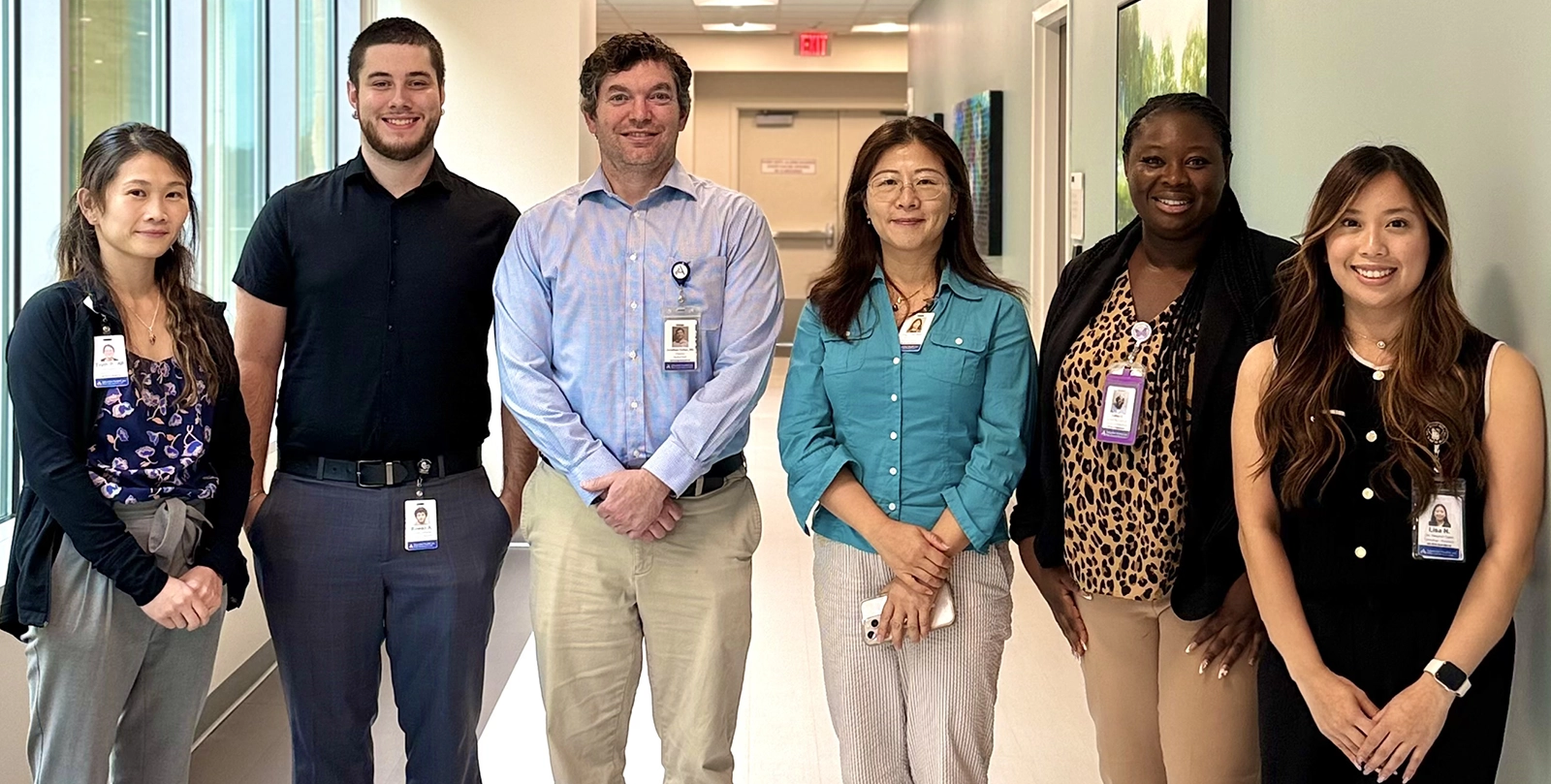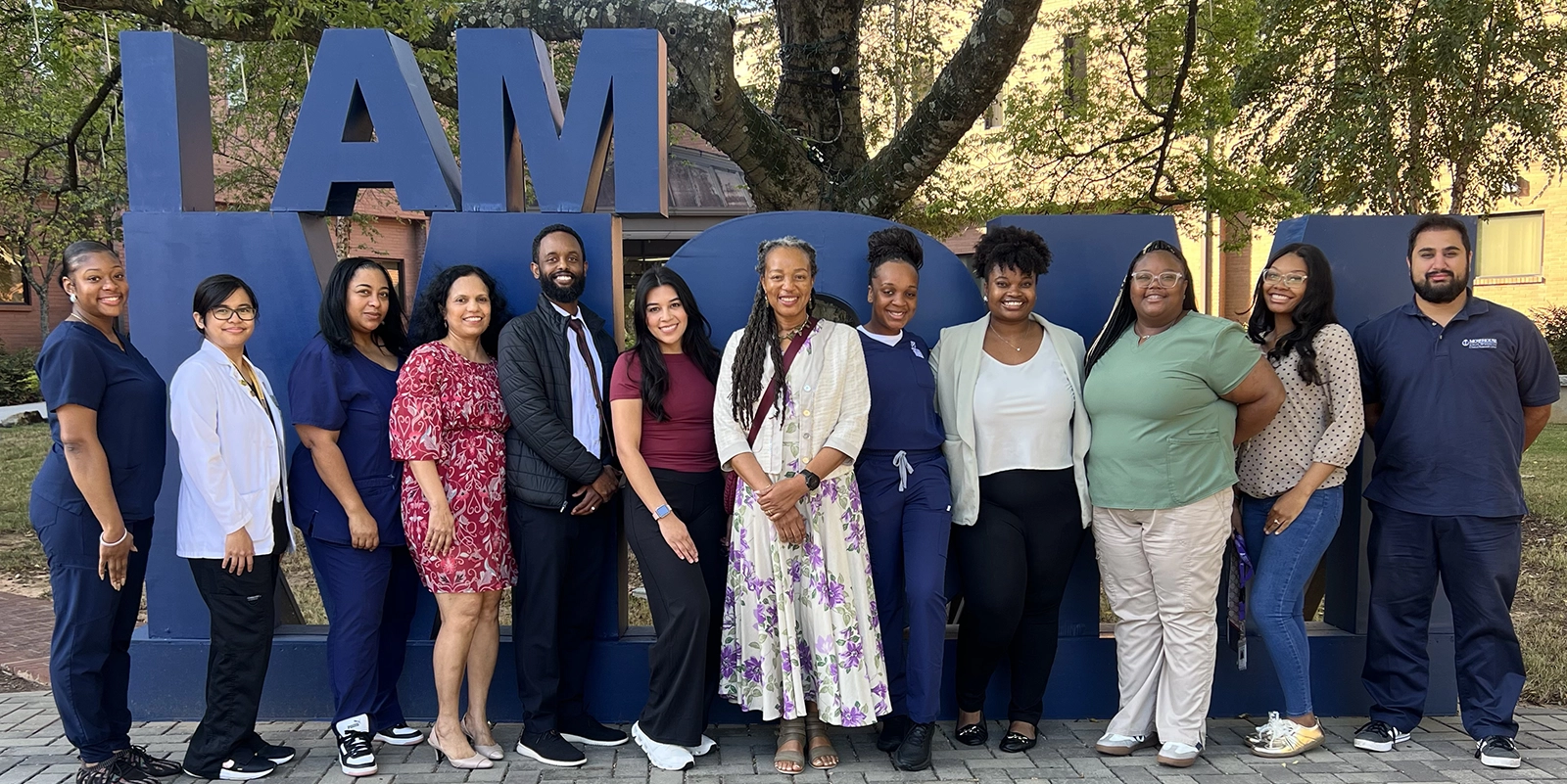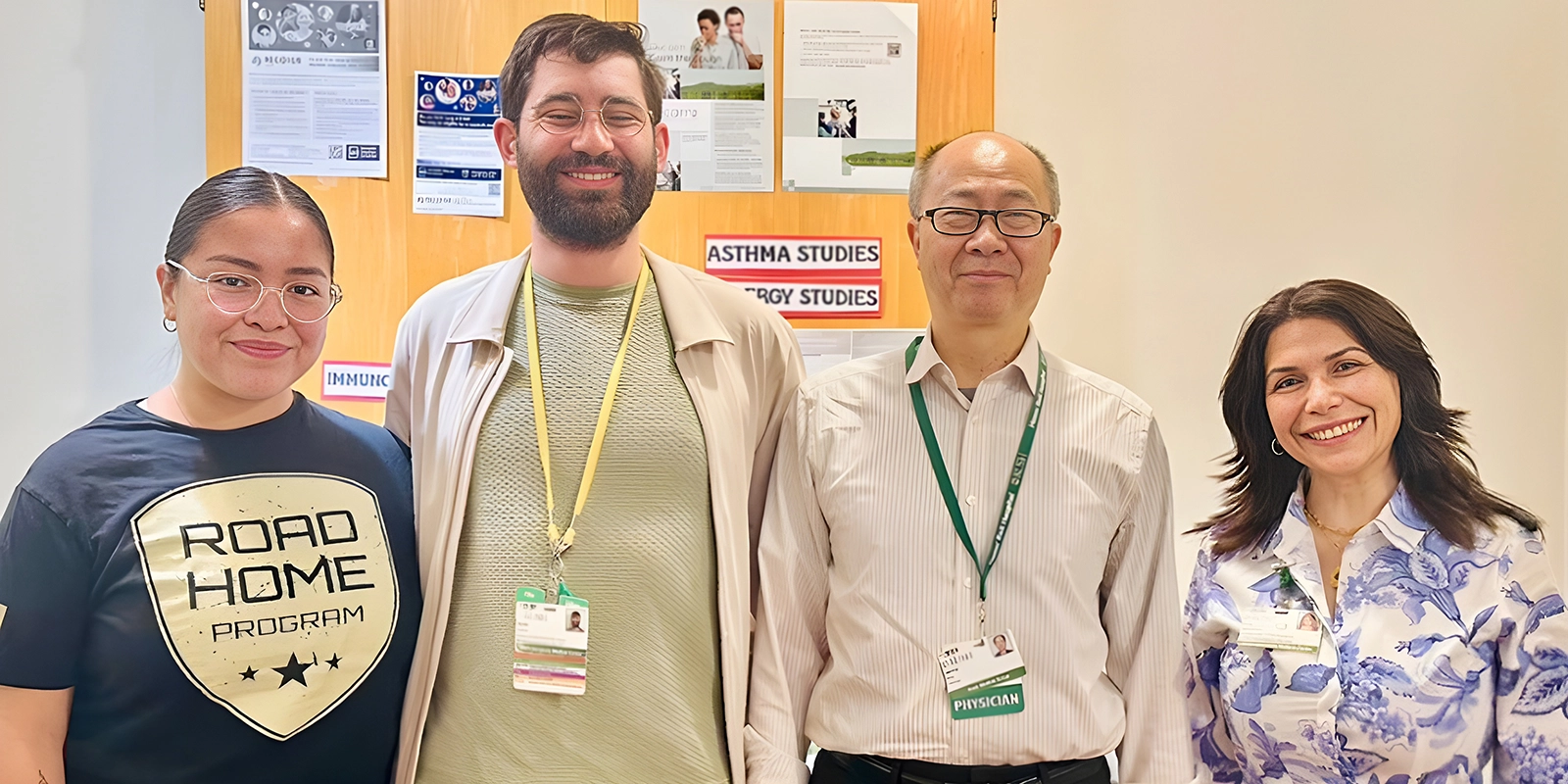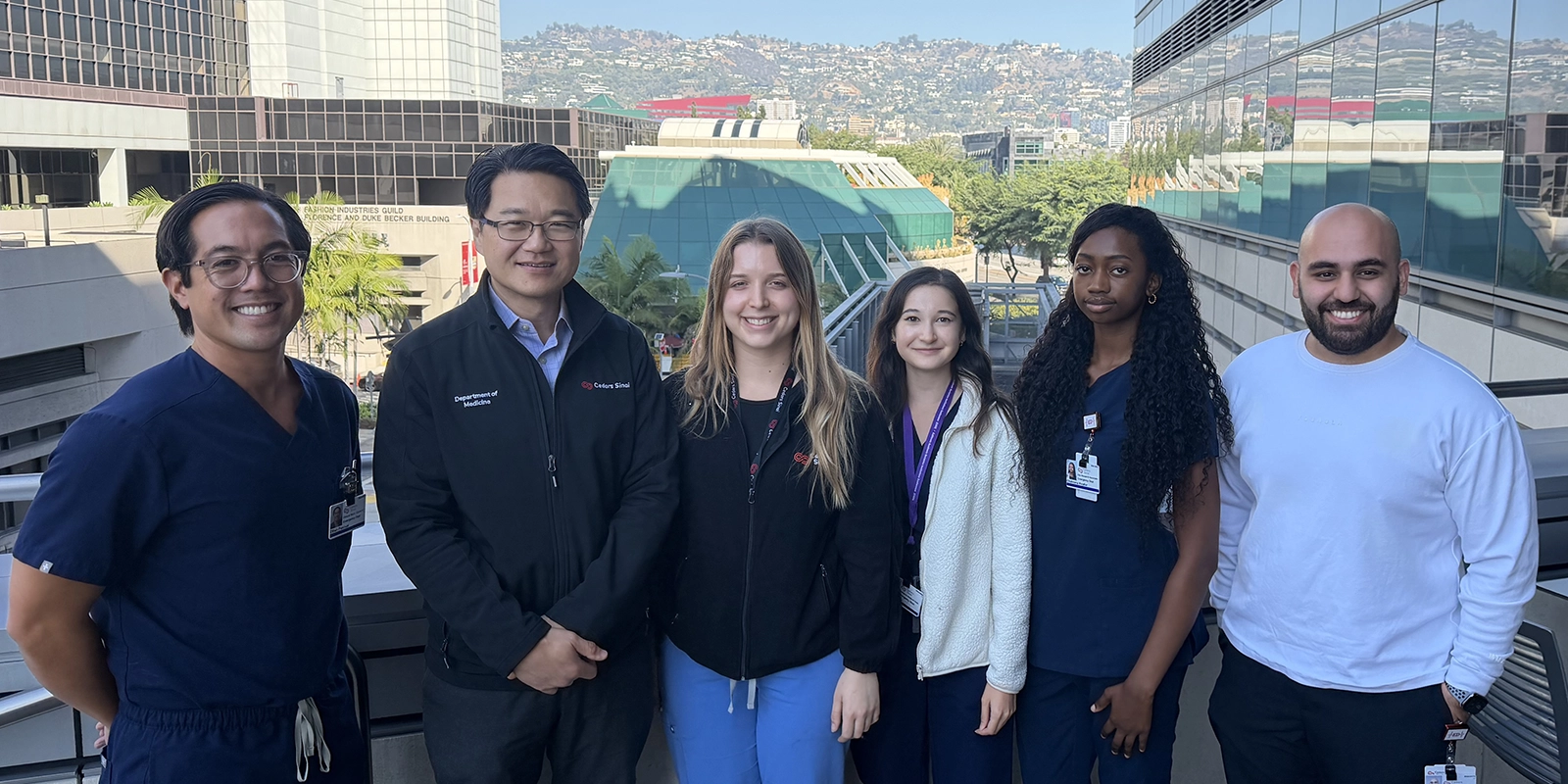Building trust and community: How top clinical trial sites excel in RECOVER enrollment success

Sites that saw success in recruiting participants for RECOVER clinical trials share that they prioritized trustworthiness, transparency, and a deep connection to the communities they serve.
RECOVER clinical trials seek to better understand the long-term effects of COVID and help identify treatments for the variety of symptoms it can cause. These trials rely on the dedicated site teams whose commitment to patient engagement, inclusive recruitment practices, and community partnerships has driven exceptional enrollment results.
In this feature, we spotlight 4 of our top-enrolling sites—Jadestone Clinical Research, Rush University Medical Center, Morehouse School of Medicine, and Cedars-Sinai—and explore the strategies that have made them leaders in recruitment for the RECOVER-SLEEP and RECOVER-AUTONOMIC clinical trials. Their efforts have resulted in the RECOVER clinical trials reaching participants from a wide range of racial, ethnic, age, and socioeconomic backgrounds, strengthening both the inclusivity and impact of the studies.
While each site brings unique strengths to RECOVER, they share common values: trustworthiness, transparency, and a deep connection to the communities they serve. Read more below to learn about each site’s individual approach and the team members who have made this work possible.
Jadestone Clinical Research, Silver Spring, MD (RECOVER-SLEEP Site)

Jadestone’s approach centers on inclusivity and trust. The site team partners with local clinics, faith-based groups, and community organizations in Maryland and surrounding areas to identify participants. They also offer materials in multiple languages and create a safe and welcoming environment to ensure accessibility for people living with Long COVID.
“Our site’s community connections and partnerships have been a key driver of enrollment success,” the Jadestone team shared. “Our trusted partners helped us share study information in a way that felt familiar and credible, which was especially important for participants who may be hesitant about research.”
“Establishing strong relationships was also key to encouraging participation, addressing concerns, and ensuring individuals felt respected and supported throughout the process,” the team added. “We implemented safety measures, provided a comfortable environment, and trained staff to be attentive to participants’ physical and emotional well-being, which helped foster trust and encouraged sustained participation in the trial.”
Jadestone Clinical Research Team
- Dr. Jonathan B. Cohen, Principal Investigator
- Trinh Pham, Research Nurse Practitioner/Sub-I
- Lisa Nguyen, Lead Study Coordinator/Research Manager/Regulatory Manager
- Rowan Arnold, Lab Specialist
- Esther Cobbina, Study Coordinator
- Ying Yuan, Budget/Contract Specialist
Morehouse School of Medicine, Atlanta, GA (RECOVER-AUTONOMIC Site)

The Morehouse School of Medicine team is deeply committed to serving its surrounding community to make sure everyone has access to healthcare. Deeply rooted in the Atlanta metropolitan community, Morehouse focuses on outreach events and education to build trust among historically underrepresented populations.
“Our community connections have been instrumental in enrollment success,” the Morehouse team noted. “Through outreach events and health education initiatives, we've fostered trust and raised awareness about the importance of participating in research. Active engagement, consistent presence, and building trust through community-centered approaches have allowed us to connect meaningfully with potential participants from the communities we serve.”
Morehouse School of Medicine Team
- Priscilla Igho-Pemu, MD, Principal Investigator
- Elizabeth Ojemakinde, MD, Project Director
- Kelechi Carl-Igwe, OD, Associate Project Director
- Carmel Ibeawuchi, Clinical Research Manager
- Concilia Ariri, Clinical Research Coordinator
- Abiola Okeyomi, Clinical Research Coordinator
- Noor Mohamed, PharmD, Pharmacist
- Kay Woodson, Pharmacist
- Tetriana Banks, Pharmacy Technician
- Annette Dandy, NP, Nurse Practitioner
- Kelly Mahfood, LPN, Licensed Practical Nurse
- Krystal Simpson-Derrell, Research Assistant
- Keysha Robinson, Lab Technician
- Brianna Lawrence, Clinical Research Coordinator
- Karina Smith, Clinical Research Coordinator
- Kaysha Harper, Clinical Research Coordinator
- Amir Afani, Clinical Research Coordinator
- Karunamuni Silva, Data Manager
- Michael Prude, Data Manager
Rush University Medical Center, Chicago, IL (RECOVER-SLEEP Site)

Rush leveraged its large patient base and word-of-mouth networks in the Chicago area to expand reach. Connecting with participants during routine clinic visits and offering plenty of flexibility in scheduling were key to this site’s success.
“A major factor for our site has been a deference to the participants' schedule, making sure we are available to assist them in being the best participant for the study, answering all questions in a timely manner, and making sure we are easy to contact either by email, call, or text every day from 7am to 10pm,” the Rush team said. “Being as flexible as the window will allow in scheduling their visits is also important to show that we value their time, as is checking on them between visits to show we are there for them.”
Rush University Medical Center Team
- Dr. James Moy, Principal investigator
- Dr. Babak Mokhlesi, Sub-Investigator
- Dina Naquiallah, CRC
- Dylan R Behun, CRC
- Tania Carmona Pastrana, CR Assistant
- Michelle Thomas, Regulatory Specialist
Cedars-Sinai, Los Angeles, CA (RECOVER-AUTONOMIC Site)

Cedars-Sinai combined responsiveness with strong patient referral networks in Southern California, managing high interest and long waitlists through proactive communication and principal investigator (PI) involvement.
“Many of our participants were new to research and joined a clinical trial for the first time, and we credit our team’s strong communication skills and quick response to calls, emails, and referrals for our high level of participant engagement,” the Cedars-Sinai team said. “We also partnered with other AUTONOMIC sites to facilitate and accept transfer requests, supporting enrollment across the network. The participants appreciated our team's responsiveness and dedication.”
“We prioritized responding to participant questions and involved the PI or Co-investigators when needed,” the team shared. “Participants reported feeling reassured knowing they could contact the study team at any time.”
Cedars-Sinai Team
- Peter Chen, MD, Principal Investigator
- Sam Torbati, MD, Sub-Investigator
- Peng-Sheng Chen, MD, Sub-Investigator
- Tanyalak Parimon, MD, Sub-Investigator
- Samuel Cohen, MD, Sub-Investigator
- Angelena Lopez, MD, Sub-Investigator
- Matthew Modes, MD, Sub-Investigator
- Siddharth Singh, MD, Sub-Investigator
- Lea Dahlke, Clinical Research Coordinator
- Chloe Nelson, Clinical Research Assistant
- Sara Watson, Clinical Research Assistant
- Ethan Pascual, MA, Clinical Research Coordinator
- Kasra Mohammadzadeh, Clinical Research Coordinator
- Mario Diaz, Clinical Research Coordinator
- Tananshi Chopra, Clinical Research Coordinator
- Chidimma Nwafor, Clinical Research Associate
- Aghigh Banitaba, Research Intern
- Riley Stoler, Research Intern
- Nancy Salinas, BSN, Clinical Research Nurse Coordinator
- Susan Jackman, RN, MS, Research Nurse Manager
- Lauren Slater, PharmD, BCPS, Pharmacist
- Elieka Ghafari, PharmD, Pharmacist
- Trung Tran, CPhT, Pharmacy Technician
- Janna Sarkisyan, CPhT, CSPT, Pharmacy Technician
- The Clinical and Translational Research Center team
Shared strategies that drive success for RECOVER clinical trial sites
The success of these sites underscores a powerful truth: Trust and community are the cornerstones of clinical research. The list of shared strategies below demonstrates how these sites have set a standard for engagement that others can follow. As RECOVER continues, these strategies will remain vital—not only for enrollment but for building lasting partnerships that can improve health outcomes for all.
Strong community engagement
- Every site emphasized leveraging community connections—whether through local clinics, faith-based groups, outreach events, or patient networks.
- Community partnerships were described as critical for trust-building and reaching people from many different backgrounds.
Building trust through transparency and rapport
- All sites highlighted clear, honest communication and respectful interactions as essential for engaging participants, especially those new to clinical trial participation. Focusing on rapport—listening to concerns, treating each participant with empathy, and making them feel valued as partners in the research—helps reduce uncertainty and builds confidence in the trial process.
- Trust-building strategies included explaining study details in simple language, encouraging questions, emphasizing participant rights and safety, and maintaining accessibility and responsiveness throughout the participants’ experience in the study.
Commitment to including participants from all backgrounds
- Each site took intentional steps to recruit members of all communities disproportionately impacted by COVID and Long COVID. In addition, the sites made efforts to reduce barriers to participation, including sharing materials in multiple languages, prioritizing flexible scheduling, and providing transportation support for participants.
- All sites emphasized empathy, respect for communities, and responsiveness as core values.
Personalized participant support
- Sites prioritized participant comfort and convenience, including flexible scheduling, safe, welcoming environments, frequent check-ins and reminders, and being available for questions for a wide window of time.
Overcoming challenges through adaptability
Adaptability and persistence, combined with transparent communication and patient-centered flexibility, helped sites overcome the following challenges:
- Participant hesitancy: Many participants were uncertain about joining research or worried about time commitments. Sites addressed this by taking extra time to explain the study in straightforward language, answer all questions, and emphasize the importance of their contribution to advancing research. Sites also increased their presence at outreach events and at Long COVID clinics to connect with potential participants.
- Scheduling conflicts: Summer breaks and holiday seasons required proactive planning—confirming availability early, scheduling ahead at in-person visits, and sending gentle reminders.
- Eligibility barriers: Identifying participants who met all eligibility criteria was difficult. Teams responded to this challenge by increasing outreach and refining screening processes to minimize failures.